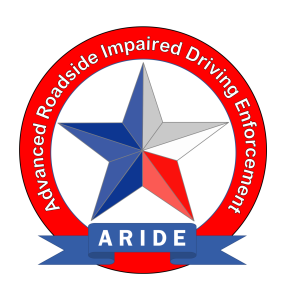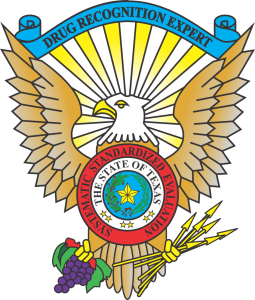Texas Drug recognition
Expert Program
Training to identify and prosecute drug-impaired drivers.


Training to identify and prosecute drug-impaired drivers.


Impaired drivers are responsible for the deaths of nearly 50 people a day and almost 18,000 people each year. The International Association of Chiefs of Police, the National Highway Transportation Safety Administration and state officials have teamed up to create the Drug Recognition Expert program.
Drug recognition is a growing field in law enforcement and has demonstrated its effectiveness as a means of identifying and prosecuting drug-impaired drivers. A properly-trained DRE can successfully identify drug impairment and accurately determine the category of drugs causing impairment. Since the first DRE program was started in the U.S. in the early 1970s, DRE programs have grown to include 49 states, the District of Columbia, Canada and several other countries around the world.
To find a Drug Recognition Expert School, click here.
Officers or their agencies are responsible for all travel, lodging, and meal costs.
DRE school is extremely demanding and is by application only. Submitting registration and an application is not a guarantee of acceptance. Applications are reviewed by members of the Texas Drug Recognition Expert Steering Committee who make recommendations to the DRE State Coordinator. The training is in three phases described below.

This phase is typically conducted over two consecutive weeks (72 hours), combining the 16-hour Pre-School with the 56-hour DRE School. They includes courses in physiology, vital signs, standardized field sobriety testing (SFST), as well as extensive material on each of the seven categories of the drugs of abuse. Course testing includes an SFST proficiency examination, two major written examinations, and five written quizzes. Students must achieve a minimum of 80% on the two examinations and must demonstrate proficiency in administering the SFST in order to progress to the certification phase. The academic training is conducted using creative, participant-centered teaching techniques and hands on coaching and practice.
After successfully completing the academic portion, the students attend field certifications at selected sites. Field certification training requires the student to conduct a minimum of 15 drug influence evaluations, 6 as the lead evaluator, while under the supervision of a DRE instructor. This can take as little as 4 days or as many as 8 days to complete depending on the facility and availability of impaired test subjects.
The Certification Knowledge Examination (CKE) is part of the Certification Phase however, it is generally administered after field certifications are complete. The exam is a comprehensive review of the entire course requiring the student to explain DRE processes, observations, and opinions in detailed narrative form. The examination takes anywhere from 4 to 10 hours to complete. Two DRE instructors independently grade the exam on-site and must concur that the examination is a pass. The student will be told whether they passed or failed before they leave. Those who pass will have their progress log completed and sent to the IACP for certification. The DRE State Coordinator will notify them when their certification is approved so they can begin conducting enforcement evaluations.
Students who fail the CKE will have to repeat the entire course if they wish to seek certification as a DRE. There is no provision for a remedial or retake of the CKE.
If you need assistance explaining the benefits of the DRE Program to your department, contact us.
To find a Drug Recognition Expert School, click below:
In considering the implementation of new traffic enforcement programs, law enforcement agencies must be aware of both short and long-term costs that are involved. In order for the program to achieve maximum results, the DRE Program requires agencies to commit considerable long-term resources to the detection and apprehension of the drug-impaired driver.
A participating agency’s traffic law enforcement officers must be committed to using the NHTSA/IACP-approved training, and the agency must continue to provide training in the NHTSA/IACP-approved Standardized Field Sobriety Testing course or IACP-approved alternate training curriculum.
The Texas DRE Program can assist your agency to include command staff overviews of the program, a best practices policy and procedure for impaired driving enforcement, as well as ongoing technical support from our staff of experts.